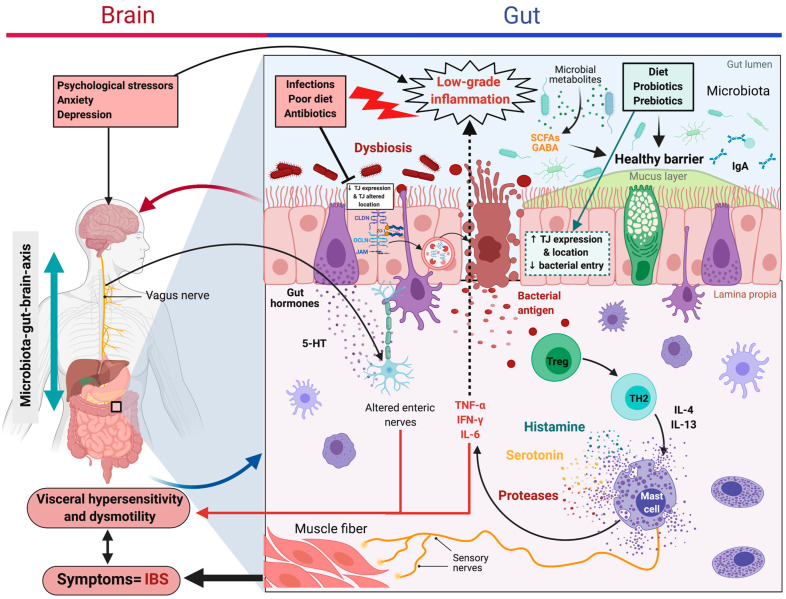Figure 3.
Increased intestinal permeability in irritable bowel syndrome (IBS). Main interactions described in IBS: different stimuli (e.g., bacterial or food antigens) can increase intestinal permeability through degradation or internalization of certain binding proteins that trigger MCs activation. These cells secrete pro-inflammatory cytokines that aggravate the altered permeability. In addition, histamine, serotonin, and proteases released by degranulated MCs are responsible for nerve excitation and the subsequent abdominal discomfort, pain, and intestinal transit changes. Microbiota of IBS patients shows lower biodiversity or an altered composition of microbes; thus, the use of probiotic strains, prebiotics, or synbiotic combinations has become a potential therapy to improve the composition of the intestinal microbiota. Their anti-inflammatory activities are also beneficial to IBS patients. (This figure was created with Biorender.com, access date: 24 May 2021).

